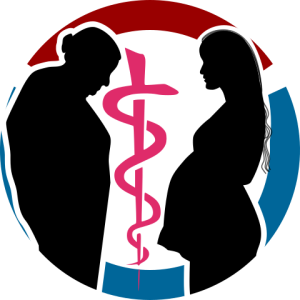The Month of May, annually is celebrated as Women’s Health Month,
first observed by National Cervical Cancer Coalition. It officially started this year on May 10th with National Women’s Health Week. US department of Health and Human Services on Women’s Health observe this week annually. May 28th is also celebrated as International Day of Action for Women’s Health.

The main goal is to help women understand what steps they can take to improve their health and also to empower women to make their health a priority. Women around the world must realize that self-care is not selfish. One cannot pour out love, care and affection from an empty vessel.
It is 2023, we have come a long way from 1995, twenty eight years after countries signed pledges in the 1995 Beijing Declaration and Platform of Action, women still face many problems – especially the right to health, and we must recommit to address them. Of course we must celebrate women and their achievements but also this is the time to take a serious look on how women’s rights are fulfilled in the world.
Despite healthcare advance in last few years we still face wide gaps in treatment and research areas that are unique to women such as maternal and menstrual health. We live in a world where still we have gender health disparities. There are countries where talking about SRHR (Sexual and Reproductive Health and Rights) is still a taboo. There are countries where women access to basic and primary health care is impossible, getting a doctor is not allowed, where period talk is disgusting, buying condoms or getting contraception services is shameful and where FGM (Female Genital Mutilation) is culture.
SRH (Sexual and Reproductive Health) problems are responsible for one third of health issues for women between ages of 14-44 years. Maternal mortality rate is unacceptably high. According to WHO report, every day in 2020 approx. 800 women died from preventable causes related to pregnancy and childbirth, making total of 287,000 deaths. Almost 95% of maternal deaths occurred in low or low-middle income countries in 2020 where lack of awareness, strict religious or cultural environment and patriarchal society exists.
Lack of awareness is one of the reasons but denying the right to know on behalf of women and stopping health organizations and activists to work in such communities; must be considered a crime. Women and girls have specific health need and health systems around the world are failing them. Issues arises when system (government and health institutions) are neglecting their role and duties to be fulfilled. “Empowering Women” or “Inclusion of Women” has been nothing but a pipeline dream for us due to use of such terms added as a rhetorical flourish to their political speeches.
Here I would like to give a huge shout out to International Alliance of Women (IAW) for running a project “Water and Pads for Schoolgirls – Empowerment for Life” in poor, rural schools of Africa and Asia. Currently, 9 IAW member organizations are playing their role by being involved in water and pads project to break this lifelong taboo topic in local communities.
To achieve Health SDGs (Sustainable Development Goals) and strengthen health system, making healthcare accessible to women organizations like WHO, UN, World Bank, Bill & Melinda Gate Foundation and many more are working to enshrine the health of women because the health of women and girls determines the health and well-being of our modern world. Importance to Health, women, and equality is already given by covering first 6 SDGs, we do not only need setting targets and indicators, but mobilize and fulfil commitments in terms of policy, provide financing to local organization to catalyze actions, to ensure that the future will bring health to all women and girls, – regardless of wherever they are. By elevating the importance of women’s health, we can deliver better care for women worldwide.
Dr. Uzma Gul
IAW Board Member
Convenor of Commission on Health




One Response
Wir wissen, dass Gesundheit nicht nur Abwesenheit von Krankheit ist. Sie betrifft ebenso die “mentale
Gesundheit ” der Seele, der Bedürfnisse und des Wohlbefindens.